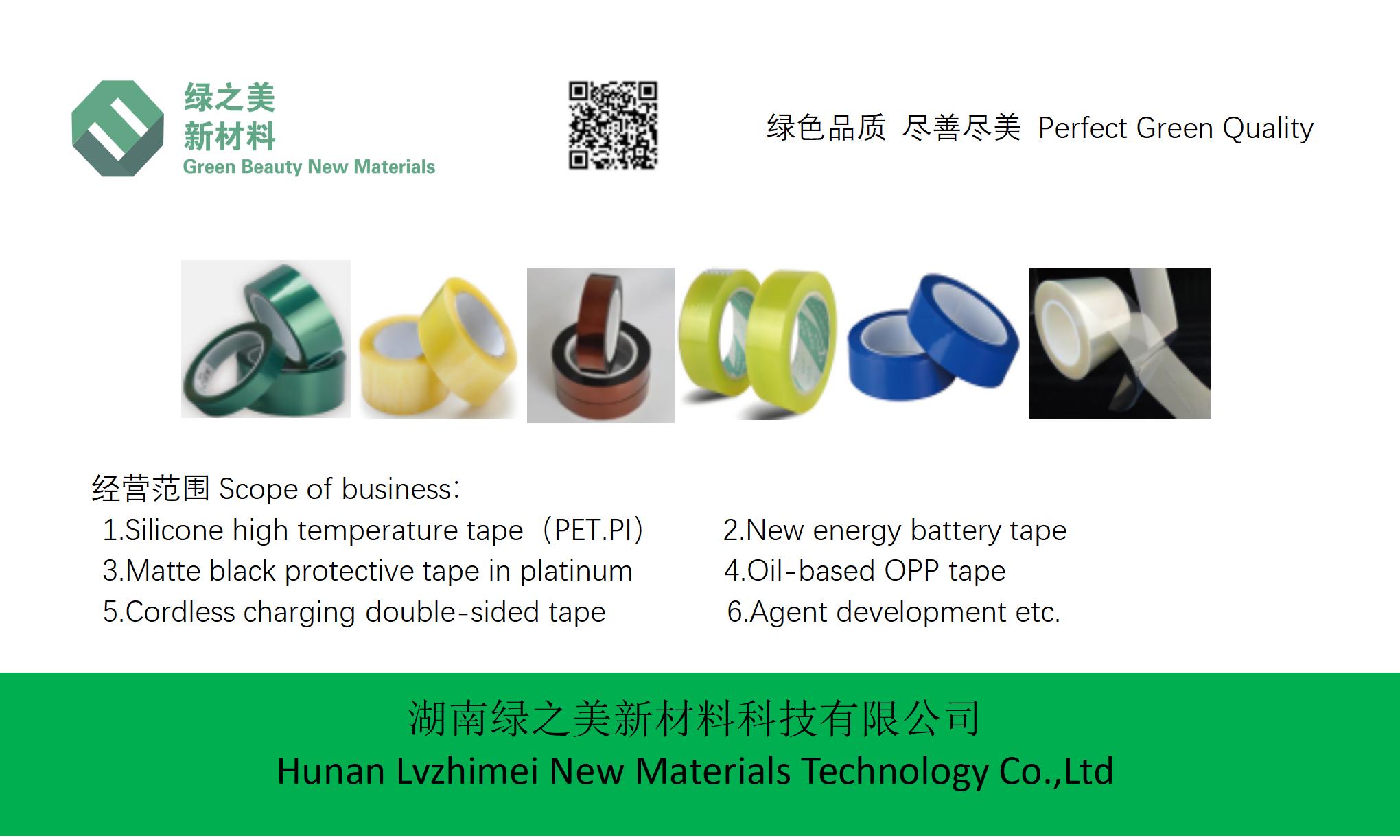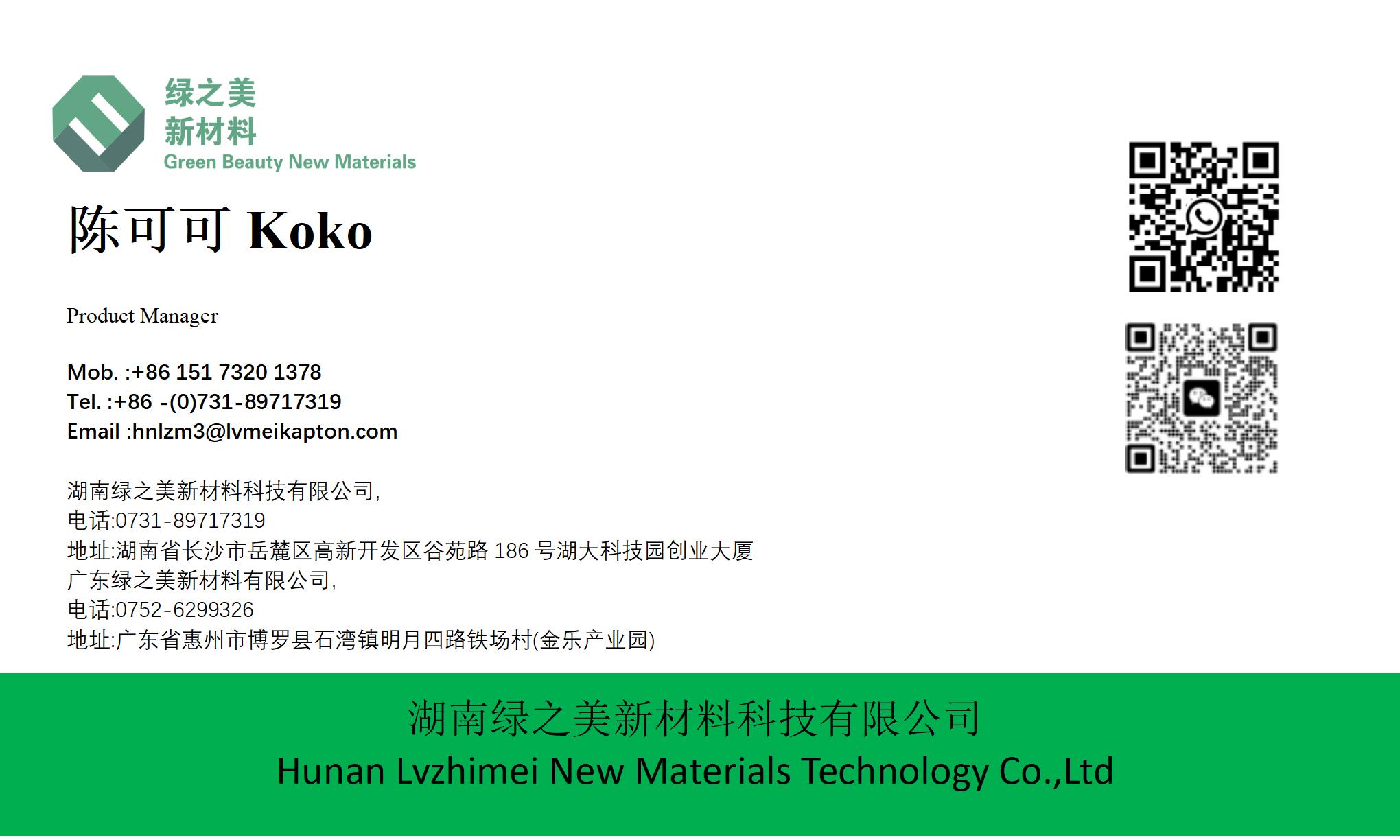hnlzm@lvmeikapton.com
+86 13787123465


Hunan Lvzhimei New Material Technology Co., Ltd.


NameDescriptionContent
Which Industries Benefit Most from PI Material High Temperature Resistant 300 Tape? |https://www.lvmeikapton.com/
Source:
|
Author:Koko Chan
|
Published time: 2025-05-28
|
396 Views
|
Share:
The PI Material High Temperature Resistant 300 Tape, also known as Polyimide (PI) tape, has emerged as a critical component in various industrial sectors due to its exceptional thermal resistance, electrical insulation, and chemical stability. This high-performance adhesive tape, capable of enduring temperatures up to 300°C, is revolutionizing manufacturing processes across automotive, electronics, aerospace, and industrial applications. This article delves into the specific benefits and applications of PI tape in these industries, highlighting its transformative impact on efficiency, reliability, and safety.
Which Industries Benefit Most from PI Material High Temperature Resistant 300 Tape?
Profiles in Automotive, Electronics, Aerospace, and Industrial Applications
The PI Material High Temperature Resistant 300 Tape, also known as Polyimide (PI) tape, has emerged as a critical component in various industrial sectors due to its exceptional thermal resistance, electrical insulation, and chemical stability. This high-performance adhesive tape, capable of enduring temperatures up to 300°C, is revolutionizing manufacturing processes across automotive, electronics, aerospace, and industrial applications. This article delves into the specific benefits and applications of PI tape in these industries, highlighting its transformative impact on efficiency, reliability, and safety.
1. Automotive Industry: Enhancing Durability and EfficiencyThe automotive sector, particularly in electric and hybrid vehicles, relies heavily on materials that can withstand extreme temperatures and harsh environments. PI tape plays a pivotal role in addressing these challenges, primarily through its high-temperature resistance and electrical insulation properties. Key applications include:
●
Motor and Battery Insulation: Electric vehicle (EV) motors and lithium-ion batteries generate substantial heat during operation. PI tape, with its thermal stability up to 300°C, is used for insulating battery packs, motor windings, and cable harnesses. This prevents thermal degradation, ensuring long-term performance and safety.
●
Engine Component Protection: Under-hood components, such as sensors, connectors, and wiring systems, face continuous exposure to high temperatures. PI tape’s resistance to heat, oils, and chemicals makes it ideal for wrapping engine parts, reducing corrosion and electrical failures.
●
Wave Soldering and Assembly: During PCB assembly in automotive electronics, PI tape is employed to protect sensitive components during soldering processes. Its ability to withstand temperatures exceeding 260°C (common in wave soldering) ensures component integrity without thermal damage.
Table 1: PI Tape Applications in Automotive Industry
Application | Key Benefits | Temperature Range |
Battery Insulation | Thermal stability, chemical resistance | 150-300°C |
Engine Wiring | Abrasion resistance, long-term durability | 200-280°C |
PCB Protection | High insulation, solder-resistant | 260-300°C |
Market Insight: The global automotive PI tape market is projected to grow at a CAGR of 8.2% by 2030, driven by the surge in EV production and stringent emission regulations. PI tape’s role in enhancing battery safety and thermal management is a key growth driver.
2. Electronics and Semiconductor Manufacturing: Precision ProtectionIn electronics, where miniaturization and high-density components demand robust protection, PI tape is indispensable. Its unique properties support critical processes and components:
●
PCB Fabrication and SMT (Surface Mount Technology): PI tape is used to mask circuit board areas during wave soldering, preventing solder bridging and thermal damage to sensitive parts. Its low outgassing characteristics ensure no contamination during vacuum processes.
●
Gold Finger Protection: The tape’s excellent dielectric strength (up to 10 kV/mm) makes it ideal for shielding "gold fingers" on connectors, preventing electrical shorts and corrosion.
●
Flexible Electronics: In flexible circuits (FPCs) and wearable devices, PI tape provides mechanical support and thermal stability, enabling repeated flexing without degradation.
●
Semiconductor Wafer Handling: PI tape’s clean-release properties are crucial in wafer dicing and handling processes, minimizing particle contamination and adhesive residue.
Advanced Features: Some PI tapes are modified with anti-static coatings or flame retardancy, catering to specialized electronics manufacturing environments.
3. Aerospace and Defense: Meeting Extreme Environmental DemandsAerospace materials must withstand the most severe conditions, from cryogenic temperatures to thermal cycling during re-entry. PI tape’s versatility makes it a preferred choice for:
●
Thermal Protection in Avionics: Engine compartments, fuel systems, and electrical harnesses require insulation that can endure temperatures up to 300°C. PI tape, combined with its lightweight nature, reduces system weight—a critical factor in aerospace design.
●
Satellite and Spacecraft Components: In space applications, PI tape’s radiation resistance and vacuum stability protect solar panels, wiring, and sensors from cosmic ray damage and thermal fluctuations.
●
Composite Material Bonding: PI tape facilitates high-strength bonding of aerospace-grade composites, offering superior adhesion and long-term reliability in pressurized environments.
Case Study: NASA’s Mars rover missions utilize PI tape for thermal shielding of electronic modules, ensuring functionality in Martian temperature extremes (-125°C to 20°C).
4. Industrial Manufacturing and Energy Sector: Reliability in Harsh ConditionsHeavy industries, including oil & gas, power generation, and heavy machinery, rely on PI tape for its durability and maintenance efficiency:
●
Transformer and Coil Insulation: PI tape’s H-class insulation (operating up to 180°C) is used in power transformers, preventing electrical breakdowns and extending equipment lifespan. Its silicone adhesive version offers high adhesion to copper and aluminum windings.
●
High-Temperature Gasketing: In industrial ovens, furnaces, and turbines, PI tape seals joints and flanges, resisting thermal expansion and chemical leaks.
●
3D Printing Support: PI tape is applied as a build platform adhesive in high-temperature 3D printers, allowing easy removal of printed parts without surface damage.
●
Oil & Gas Exploration: Downhole equipment subjected to high temperatures (up to 200°C) utilize PI tape for cable insulation, ensuring signal integrity in drilling operations.
Economic Impact: A study by the Industrial Materials Association indicates that PI tape adoption in maintenance reduces equipment downtime by 30% in petrochemical plants, saving millions in repair costs.
5. Advantages Beyond Temperature ResistanceWhile high-temperature tolerance is PI tape’s primary strength, its ancillary properties drive widespread adoption:
●
Electrical Insulation: Dielectric breakdown voltage up to 8.5 kV ensures safety in high-voltage environments.
●
Chemical Resistance: Immunity to acids, solvents, and oils makes it suitable for corrosive industrial settings.
●
Low Residue Removal: Post-application, PI tape leaves no adhesive残留, crucial in cleanroom environments.
●
Flexibility and Conformability: Thin profiles (0.03-0.3 mm) allow wrapping intricate components without compromising performance.
6. Technological Innovations Expanding PI Tape CapabilitiesOngoing research is enhancing PI tape’s functionality. Notable advancements include:
●
Nano-Modified Adhesives: Incorporating nanoparticles improves adhesion at high temperatures while reducing curing times.
●
UV-Curable PI Tapes: New formulations enable rapid bonding under UV light, streamlining assembly processes.
●
Intelligent Tapes: Sensors integrated into PI tape monitor temperature and stress, providing real-time equipment diagnostics.
7. Environmental and Sustainability ConsiderationsPI tape’s sustainability credentials are evolving. Key developments include:
●
Recyclable PI Films: Some manufacturers are developing partially recyclable PI tapes, reducing waste in electronics disposal.
●
Low-VOC Formulations: Eco-friendly adhesives minimize environmental impact during production and use.
●
Longevity and Reusability: Durable PI tapes reduce replacement frequencies, aligning with circular economy principles.
Conclusion: A Catalyst for Technological AdvancementThe PI Material High Temperature Resistant 300 Tape’s versatility across automotive, electronics, aerospace, and industrial sectors underscores its role as a cornerstone material in modern technology. By enabling thermal protection, electrical reliability, and chemical resistance, PI tape enhances product longevity, safety, and operational efficiency. As industries pivot towards electrification, miniaturization, and sustainability, the demand for PI tape is set to surge. Its continuous innovation ensures it will remain a critical enabler of technological advancement for decades to come.


Hunan Lvzhimei New Material Technology Co., Ltd.
Quick Links
Product Categories
© 2024 Hunan Lvzhimei New Material Technology Co., Ltd.All Rights Reserved. Designed by Erge
0731 - 89717319
hnlzm@lvmeikapton.com
+86 13787123465
Room 502, Chuangye Building, No186, Guyuan Road, High-Tech District, Changsha, Hunan, China
CONTACT









